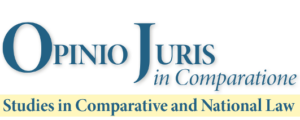Searching for a common core of family law in Europe. Methods and goals
Authors: Alessandra Pera
ABSTRACT
In this Article the Author, a member of the group of European investigators involved in the searching process for a Common Core of Family Law in Europe, does not want to present the results of the project, that will be published in a forthcoming volume, but, instead, seeks to distinguish the FLCCP (Family Law Common Core Project) from similar research experiences, such as the CEFL (Commission of European Family Law) one.
In order to highlight these differences, in the first part (paragraphs 1,2,3) the paper describes the goals of the Common Core Project and the methodology it employs, making references to the Cornell’s Studies, the Schlesinger’s factual approach and the Sacco’s formants theory.
In the second part the analysis pinpoints the peculiarities of functionalism and the way the Common Core method re-interprets it on a large scale as a collaborative effort, because of the synergy between the work of the national rapporteurs, the answers obtained through the questionnaires and the group sessions and reports (par. 4).
Further, the Article stresses the different goals of CEFL and FLCCP and argues how these differences concerning also their respective goals and methods affect the research’s results and the idea of what the harmonization of family law (if any and possible) might be expression of (par. 5). In the last part the Author maps an alternative route to the harmonization of European family law,which combines the use of European international private law regulations on family matters, the concepts of private autonomy and Courts rulings, together with doctrine efforts (par. 6).
Keywords: Common Core - Family Law - Method - Factual Approach - International Private Law - Better Rule - Harmonization

